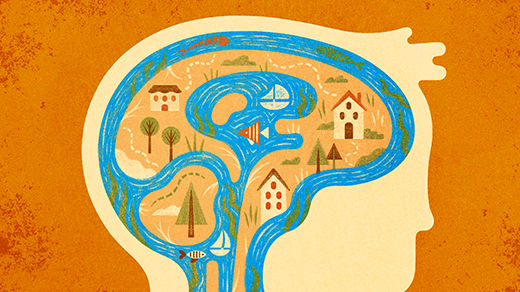What's up in
Sleep
Latest Articles
How the Brain Moves From Waking Life to Sleep (and Back Again)
Neuroscientists probing the boundary between sleep and awareness are finding many types of liminal states, which help explain the sleep disorders that can result when sleep transitions go wrong.
The Mysterious Flow of Fluid in the Brain
A popular hypothesis for how the brain clears molecular waste, which may help explain why sleep feels refreshing, is a subject of debate.
Why Do We Die Without Sleep?
The reasons why sleep is so vital often hide in unexpected parts of the body, as host Steven Strogatz discovers in conversations with researchers Dragana Rogulja and Alex Keene.
The Year in Biology
The detailed understanding of brains and multicellular bodies reached new heights this year, while the genomes of the COVID-19 virus and various organisms yielded more surprises.
Sleep Evolved Before Brains. Hydras Are Living Proof.
Studies of sleep are usually neurological. But some of nature’s simplest animals suggest that sleep evolved for metabolic reasons, long before brains even existed.
Emery Brown and the Truth About Anesthesia
Anesthesia is very different from sleep — which is why it offers unique opportunities for studying the human brain, says the physician-researcher and statistician Emery Brown.
Brain’s ‘Background Noise’ May Hold Clues to Persistent Mysteries
By digging out signals hidden within the brain’s electrical chatter, scientists are getting new insights into sleep, aging and more.
The Year in Biology
While the study of the SARS-CoV-2 virus was the most urgent priority, biologists also learned more about how brains process information, how to define individuality and why sleep deprivation kills.
Why Sleep Deprivation Kills
Going without sleep for too long kills animals but scientists haven’t known why. Newly published work suggests that the answer lies in an unexpected part of the body.








